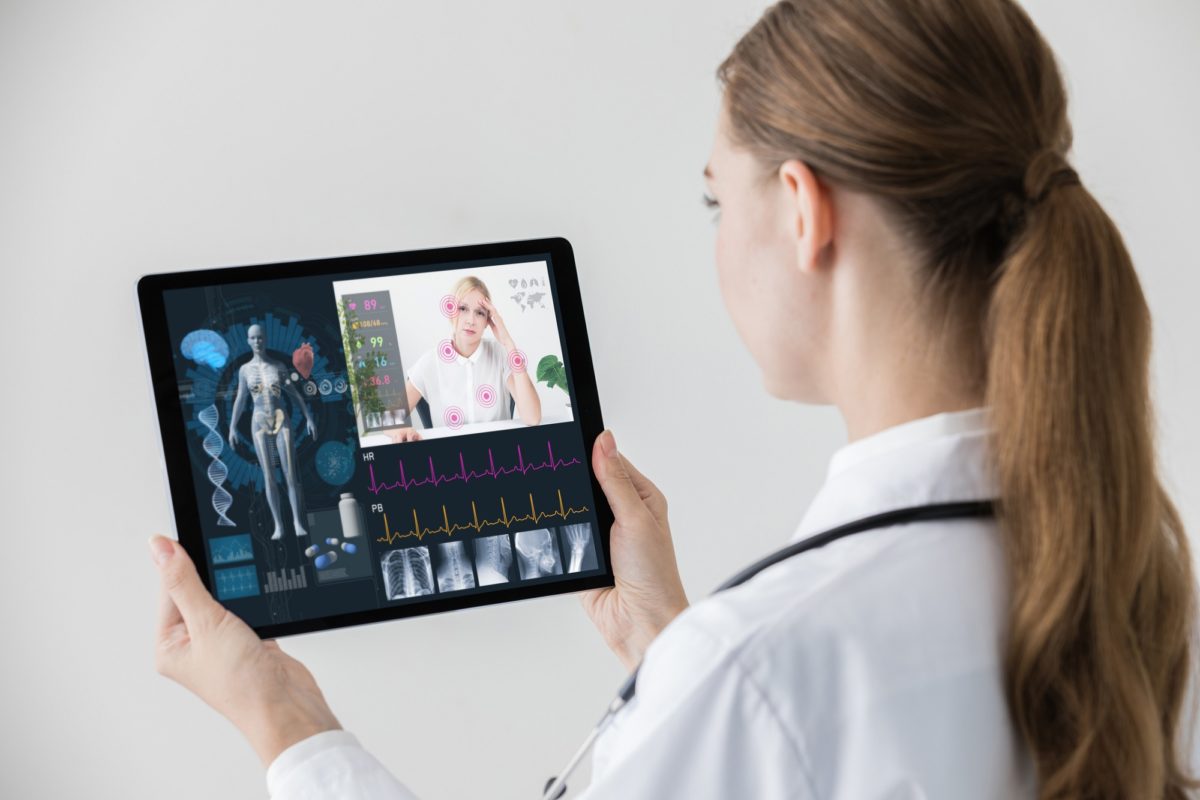
When Katie Groh began her career at Epic, a leading medical software company, she soon realized that she wanted to advance in the technology industry. She searched for a graduate program that could quickly lead to growth opportunities and found what she wanted in the accelerated Human Factors and Health Systems Engineering program at her alma mater, the University of Wisconsin–Madison.
“My career goal is to be a user researcher for a tech company,” she says. “Because I want to be able to understand how a computer user interacts with a piece of software or hardware and make it as accessible and easy to use as possible, I was looking for certain types of courses. This program offered them.”
Innovation through engineering

A specialized path to an industrial engineering master’s degree, the Human Factors and Health Systems Engineering program prepares professionals to solve complex problems and drive innovation in health care and beyond. Renowned faculty impart time-tested engineering principles such as ergonomics, job design, and decision science, which can be applied to health care issues ranging from long-term care to patient safety. Plus, courses such as Human Factors Design, Health Information Systems, and Introduction to Quality Engineering teach students how to address the challenges technology users face and improve the performance of the many systems that comprise modern health care.
Students typically complete the program in one year, which allows them to bring their new skills to the job market immediately. Along the way, they work with advisors to choose a blend of courses that supports their career ambitions, whether it’s working in human-centered design for Apple or improving organizational effectiveness in hospitals.
Real-world applications
Groh appreciates the program’s opportunities to implement the knowledge she is acquiring. These include opportunities to practice collecting data about user behavior and use research findings to address real-world problems.
“The projects we work on in class are helpful for seeing how what we are learning can be used in a practical application,” she says. “In one course, we were paired with a local business. We got to go onsite to implement Kaizen tools to improve their workflows. In another class, I learned how to code with R and create my own visualizations.”
One of Groh’s favorite experiences took place in a course on human-computer interaction (HCI).
“There I learned how to create surveys and usability studies, and then I was able to run a few experiments with them and analyze that data. I’ll be able to take the techniques I’ve learned in this class and combine that with coding in R to create visualizations that are easy to understand and help make products better,” she explains.
A toolkit for success
Groh has even worked in Prof. Bilge Mutlu’s HCI lab, which has amplified her knowledge about data analysis and usability studies.
“I have learned the proper way to conduct these studies and analyze their results, which is what I am hoping to do in the future,” she says.
Thanks to these experiences, Groh feels she has “the perfect toolkit” for succeeding in an exciting career that embraces progress.
Learn more about the Human Factors and Health Systems Engineering program. Applications for spring admission are due Oct. 1, and applications for fall admission are due Jan. 1.